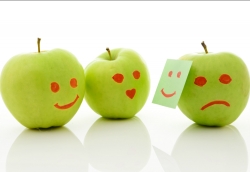Are citizens sick-and-tired of sustainability? Apparently, there seems to be a growing gap between the increasing necessity for a more sustainable lifestyle, where citizens have to reduce their ecological footprint, eat less meat, reduce their car driving and change their overall consumption pattern, and the effectiveness with which they can be convinced to change their behavior indeed. Last summer, the Belgian newspaper De Standaard reported on a survey amongst Belgian citizens on the concept of ‘sustainability’ showing a real sustainability blues. Half of the respondents actually have no idea what ‘sustainability’ means and 25% simply get irritated when they hear about the ‘S-word’. Further, and no less worrying, 70% of the respondents consider that efforts by private companies to become more sustainable, are mostly purely commercially based.
A major explanation is that there seems to be an overkill in the use of this ‘container concept’, which is moreover rarely clearly defined. Because the word is used too often in dubious meanings and contexts, such as in marketing campaigns, it is getting harder to convince people to seriously reflect on their own behaviour. Moreover, sustainability is often presented as an obligation, both to citizens and companies. Obligations are hard to sell. Life is already quite complex as it is, say citizens and managers all the like, so they are not really keen on additional burdens and complications. The CASI-blogpost Sustainability – our part to play, already addressed this issue by providing very concrete tips and tricks to make a sustainable lifestyle easier. Still it does not come as a surprise that the survey respondents admit that they prefer comfort and price over ecological arguments. Focusing on the fatalities of climate change and on a multitude of obligations also make people angry ànd they trigger a reaction that first of all ‘the others’ should change rather than me. As a result citizens consider that major efforts must come in the first place from enterprises, especially from the energy, transport and food industries, as well as from the government and public authorities.
An effective way to tackle the sustainability blues is to convincingly demonstrate the high and immediate impact of very concrete measures. When citizens observe that less traffic makes their neighbourhood more pleasant, when they taste a really good vegetarian meal, when they experience that travelling by train is so much more relaxing than queuing at customers in a hot and crowded airport, the sustainability message is much more effective to sell. So let us make it a positive story rather than one based on fatalities and defeatism! This is also true for the global warming and climate change discourse in general: rather than scaring people off, one should convince them with the benefits and comfort of a healthy and clean environment.
In fact, selling the positive message should be easy. “The argument that the others should solve the problem today simply won’t wash”, says Serge de Gheldere, the CEO of Futureproofed. “Today, citizens are no longer powerless. On the contrary, they never had so much tools and opportunities to actively contribute to climate change: you can find the most environmental-friendly energy provider with two mouse clicks, customer-friendly apps easily guide you to public transport, car-sharing is available in every neighbourhood, vegetarian restaurants pop-up on every corner”. In other words, today it should be hard to ignore the sustainable alternatives. In fact, the CASI Ideas bank is the very proof of this with its large number of very diverse and innovative sustainable alternatives available for citizens, governments and organisations. More than 500 cases of Sustainable Innovations across the EU and beyond have been mapped. Still, uptake remains difficult and we have to admit that sustainable lifestyles are not yet the default choice for most of us. Therefore, sufficient attention to overcome the barriers, which are listed in the CASI Ideas bank too, is still important and peraps the sustainability blues should be officially acknowledged as one of those…
At the same time, a lot is already happening without the label of sustainability too: a lot innovative partnerships between ngo’s and companies, supported by a well-thought policies, are joining efforts and a growing number of markets and initiatives emerge around the increasing demand of citizens for a healthier environment and life. In reality, governments and public authorities, market players, grass-root initiatives and citizens all have their role to play.
Relevant themes:
Sustainable innovation
Relevant tags: Sustainable lifestyles
























